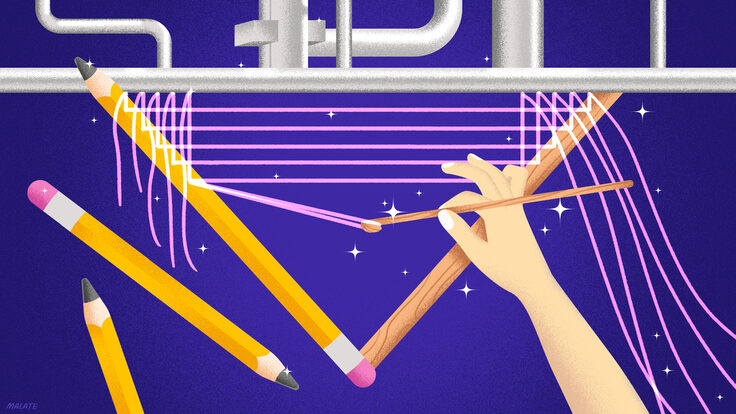"It's not at all difficult to make science funny," says playwright and actor Richard Dormer. Anyone who has sat through an actual lecture on quantum mechanics may have their doubts, but Dormer says his latest play, a black comedy rooted in high-energy physics, has successfully engaged audiences with physics subject-matter in a light-hearted way.
"At first they're going, 'Uh oh,' but at the end of the play they've all been telling me it's perfectly clear what's happening," he says. "The audience is getting things explained to them in a funny way. I think they feel kind of enlightened by it."
The Gentlemen's Tea-Drinking Society follows four middle-aged Cambridge graduates who have reunited yearly since their undergraduate days. They're in varying states of career frustration, but one of them, a physicist named Brian, played by Dormer, has a secret-he's discovered the Higgs boson in a particle accelerator constructed in an abandoned section of the London underground. It's a humorous, science-fiction take off the now-familiar Large Hadron Collider.
"I found the nature of what they're trying to do at the LHC very exciting, that quest and journey into the unknown," Dormer says. But to write jokes about quantum mechanics and particle physics, he had to do his homework.
"I read all the beginner guides-A Brief History of Time, A Briefer History of Time," Dormer quips. "I had to learn it from scratch. That whole world is kind of bewildering, but I really enjoyed it, and I kind of got inspired by it."
This spring the play traveled from Dormer's native Belfast through Northern Ireland and Ireland before ending its run in Glasgow, Scotland. Dormer still has no plans to take The Gentlemen's Tea-Drinking Society to the LHC.
"I'd love to, but they'd have to invite us. But they'd be going, this is preposterous, you can't do this, you can't do that," he says. They also might object to play's ending; Brian's discovery of the Higgs particle leads to an apocalyptic scenario, hardly the kind of media the LHC needs. But, Dormer insists, "I'm not trying to warn people about the LHC." The play, he says, is as much about academic squabbles, middle age, and friendship as it is about physics.
"The thing is if you root science in something every day that people can understand, they will see it as funny and not some alien artifact," Dormer says. "They can embrace it."
Reviewers don't seem to know what to make of the play. Jay Richardson of The Scotsman complains of a " confusing, ongoing allusion to Schrödinger's cat," while The Stage's Jane Coyle calls it "a tribute to...the daring of [Dormer's] imagination that such unpromising subject matter could be...transformed into a riveting evening's entertainment."
In any case, the British Council seems to buy the unusual combination of science and comedy. They've selected the play for their annual showcase of the best of British theater, which will run alongside the International Festival and Fringe this August in Edinburgh, Scotland. So if Edinburgh native Peter Higgs is wondering what Dormer has made of his theory, he won't have far to look.
by Lauren Schenkman







